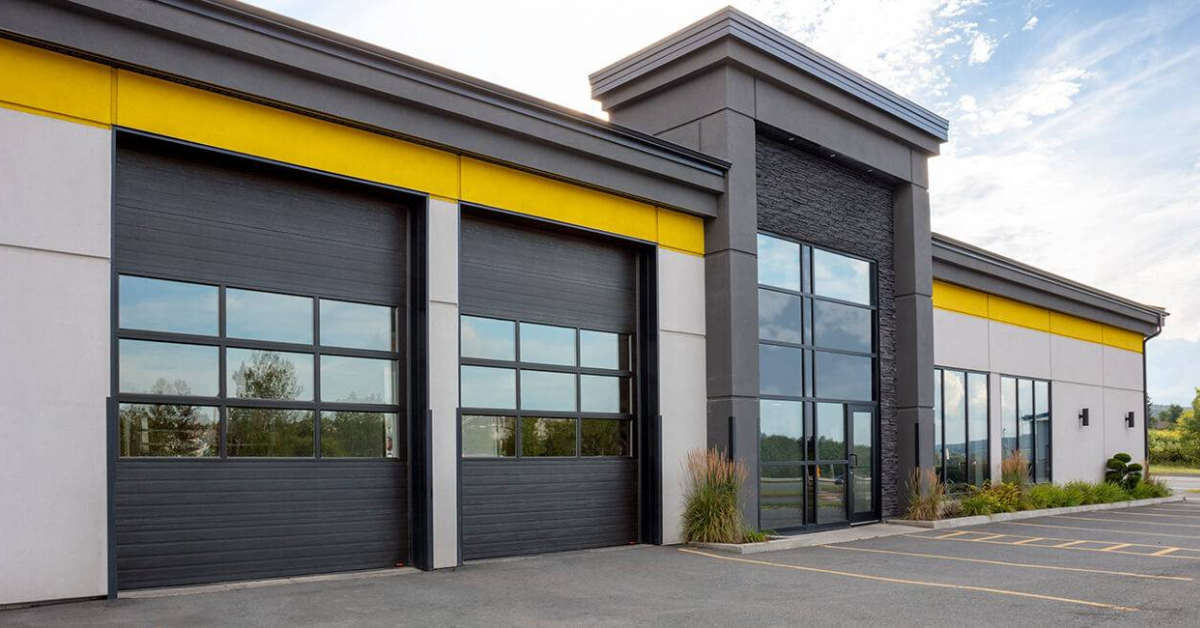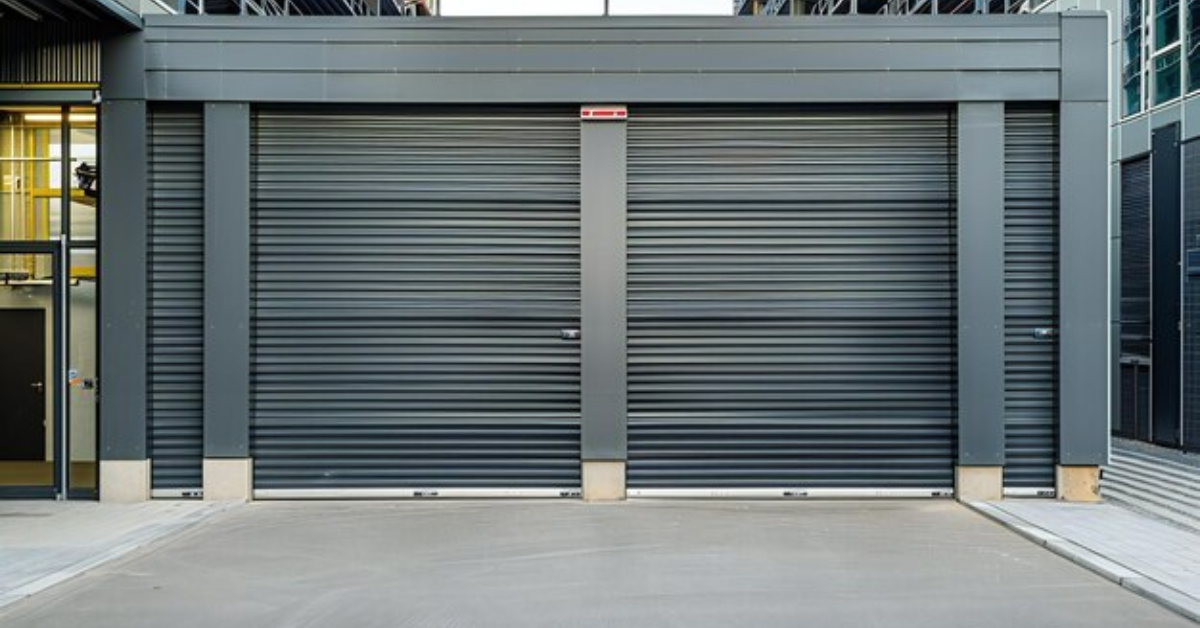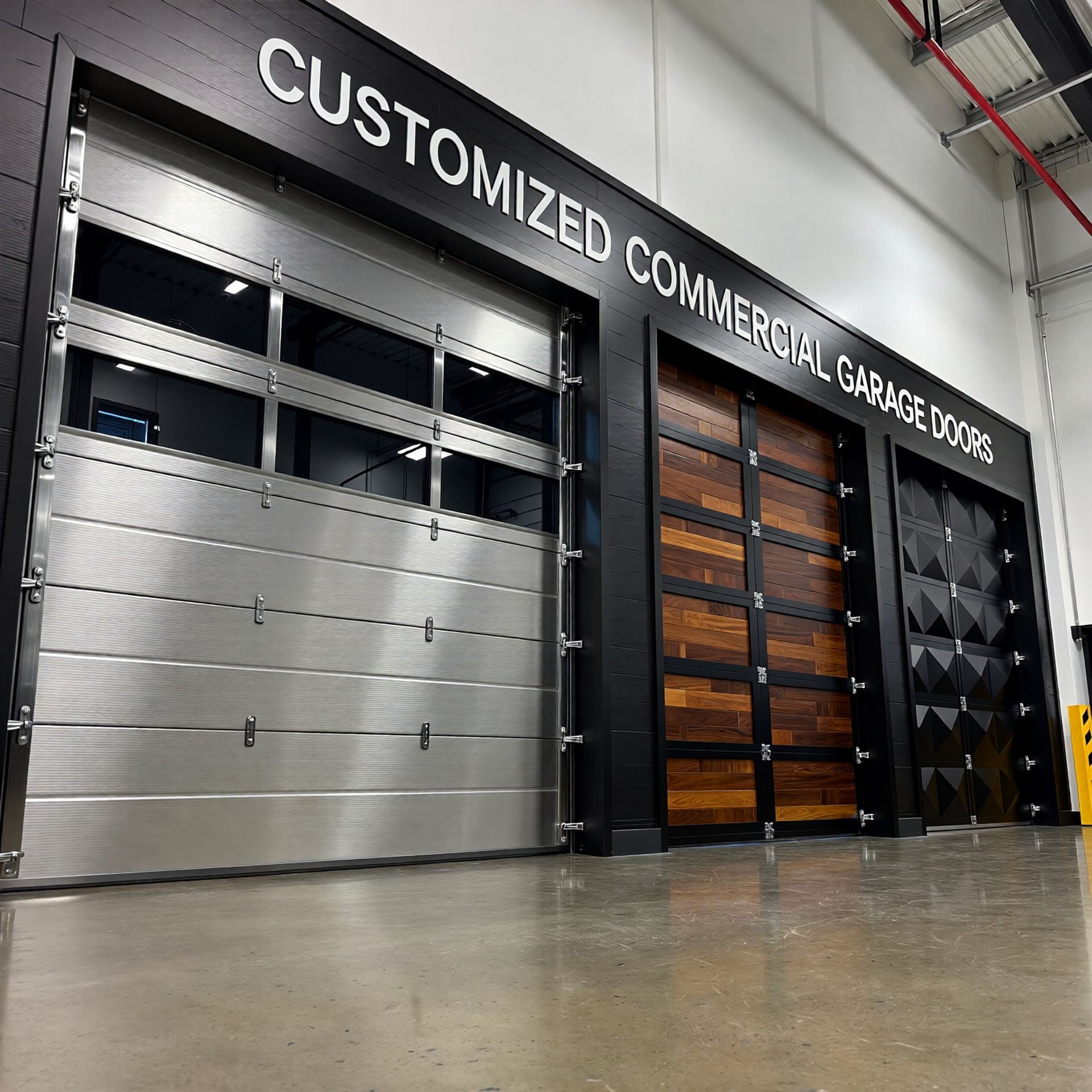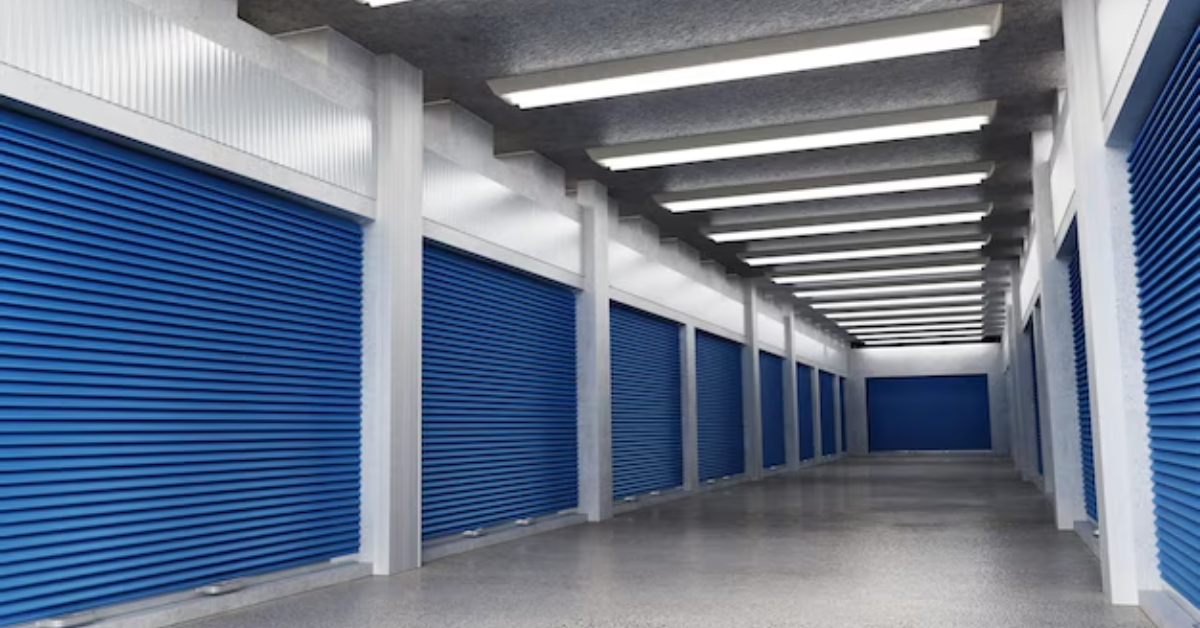How Much Does A Commercial Garage Door Cost?
Commercial garage doors play a crucial role in the functionality and security of various businesses, ranging from warehouses and distribution centers to automotive repair shops and retail establishments. These doors not only provide access for vehicles and equipment but also serve as a barrier against unauthorized entry and environmental elements. Understanding the cost associated with commercial garage doors is essential for business owners and facility managers to make informed decisions when planning for installation or replacement.
The importance of commercial garage doors cannot be overstated, as they are vital components of the infrastructure that directly impacts business operations. Whether it's facilitating the smooth flow of goods and personnel in a warehouse or ensuring the safety of valuable assets in a retail store after hours, the reliability and efficiency of commercial garage doors are paramount. These doors also contribute to the overall aesthetic appeal and professional image of a business, making them an integral part of its branding and customer experience.
Several factors influence the cost of commercial garage doors, ranging from the type and size of the door to its material, insulation, and customization options. Understanding these factors is crucial for accurately estimating the cost and ensuring that the chosen door meets the specific needs and budget of the business. By exploring the various aspects affecting cost, business owners can make informed decisions and invest in high-quality garage doors that provide long-term value and reliability.
Types of Commercial Garage Doors
Roll-Up Doors:
- Roll-up doors, also known as rolling steel doors, are one of the most common types of commercial garage doors. These doors consist of horizontal slats that are interconnected and roll up into a coil above the door opening when opened. Roll-up doors are known for their durability, security, and space-saving design. They are often used in warehouses, storage facilities, and industrial buildings where space is limited and frequent opening and closing is required. Roll-up doors are available in various materials such as steel, aluminum, and fiberglass, offering options for different levels of security and insulation.
Sectional Doors:
- Sectional doors are made up of multiple horizontal panels or sections that are connected with hinges. When opened, these panels slide up and overhead along tracks, parallel to the ceiling. Sectional doors are versatile and commonly used in commercial settings such as loading docks, car dealerships, and retail establishments. They come in a variety of materials, including steel, aluminum, and wood, and can be insulated for energy efficiency and soundproofing. Sectional doors offer excellent durability, security, and aesthetic appeal, making them a popular choice for businesses of all sizes.
High-Speed Doors:
- High-speed doors, also known as rapid roll doors or high-performance doors, are designed to open and close quickly, allowing for efficient traffic flow and temperature control. These doors are often used in facilities with high-traffic areas such as warehouses, manufacturing plants, and cold storage facilities. High-speed doors operate at speeds of up to several feet per second, reducing energy costs and improving productivity by minimizing air infiltration and maintaining climate control. They are available in various configurations, including fabric, metal, and hybrid materials, and can be customized to suit specific application requirements.
Fire-Rated Doors:
- Fire-rated doors are specially designed to withstand fire and prevent its spread between different areas of a building. These doors are essential for ensuring the safety of occupants and protecting property in commercial and industrial settings. Fire-rated doors are constructed with fire-resistant materials such as steel or composite materials and are equipped with seals and closures to prevent the passage of flames and smoke. They are commonly installed in areas where fire hazards are present, such as storage rooms, utility closets, and corridors, and are available in various fire ratings to meet building code requirements.
Security Shutters:
- Security shutters, also known as rolling shutters or security grilles, are designed to provide enhanced security and protection against vandalism, burglary, and forced entry. These doors consist of interlocking slats or bars that can be rolled down to cover windows, doors, or storefronts when not in use. Security shutters are commonly used in retail stores, banks, pharmacies, and other commercial properties where security is a priority. They are available in a variety of materials, including steel, aluminum, and polycarbonate, and can be operated manually or with motorized mechanisms for added convenience and security.
Overall, each type of commercial garage door offers unique features and benefits suited to different applications and requirements. Whether prioritizing durability, security, speed, or fire protection, business owners can choose from a range of options to find the perfect solution for their commercial property.
Factors Influencing Cost
Size and Dimensions:
The size and dimensions of a commercial garage door play a significant role in determining its cost. Larger doors with greater width and height require more materials and labor for manufacturing and installation, leading to higher costs. Additionally, custom-sized doors may incur additional expenses due to the need for specialized fabrication and engineering to meet specific requirements.
Material and Construction:
The
choice of material and construction significantly impacts the cost of a commercial garage door. Common materials include steel, aluminum, wood, and fiberglass, each with its own cost implications. Steel doors are known for their durability and security but tend to be more expensive than aluminum or fiberglass options. Wood doors offer a traditional and aesthetic appeal but may require more maintenance and come at a higher cost. The construction quality, such as single-layer, double-layer, or triple-layer construction, also influences the cost, with thicker and more insulated doors typically commanding a higher price.
Insulation:
Insulation is an essential factor affecting the cost of commercial garage doors, especially for businesses seeking energy efficiency and climate control. Insulated doors are constructed with additional layers of insulation material, such as polyurethane or polystyrene, sandwiched between steel panels. While insulated doors offer superior thermal efficiency and noise reduction, they come at a higher cost compared to non-insulated doors. The level of insulation, expressed as R-value, also affects the cost, with higher R-value doors commanding a premium price.
Customization Options:
Customization options, such as color, finish, window inserts, and decorative hardware, can significantly influence the cost of a commercial garage door. Businesses seeking a unique aesthetic or branding may opt for custom colors and finishes, which may incur additional expenses for special ordering or customization. Similarly, the addition of window inserts or decorative elements adds to the overall cost of the door. However, these customization options allow businesses to tailor the appearance of the door to match their architectural style and branding requirements.
Brand and Manufacturer:
The brand and manufacturer of the commercial garage door also impact its cost. Established brands with a reputation for quality and reliability often command higher prices due to their brand recognition and warranty coverage. However, choosing a reputable manufacturer ensures product reliability, performance, and customer support, which may justify the higher initial investment. Additionally, lesser-known or generic brands may offer lower-priced options, but businesses should carefully consider factors such as warranty coverage, product quality, and long-term reliability before making a purchasing decision.
Cost Comparison
Average Price Range:
The average price range for commercial garage doors varies depending on factors such as size, material, insulation, and customization options. On average, businesses can expect to pay anywhere from $1,000 to $10,000 or more for a standard-sized commercial garage door. Larger or custom-sized doors, insulated doors, and doors with additional features or customization options may fall on the higher end of the price range.
Cost Breakdown by Type:
Commercial garage doors come in various types, each with its own cost implications. Roll-up doors, sectional doors, high-speed doors, fire-rated doors, and security shutters have different price ranges based on factors such as material, construction, and features. Roll-up doors and sectional doors are among the most common types and typically range from $1,000 to $5,000 for standard sizes, while high-speed doors and fire-rated doors may range from $5,000 to $10,000 or more depending on size and features.
Additional Costs (Installation, Maintenance, Repairs):
In addition to the upfront cost of the garage door, businesses should budget for additional expenses such as installation, maintenance, and repairs. Professional installation by experienced technicians ensures proper fitting and operation of the door but may incur labor costs ranging from a few hundred to several thousand dollars depending on the complexity of the installation. Regular maintenance, including lubrication, inspection, and minor repairs, helps prolong the lifespan of the door and prevent costly repairs in the future. Businesses should also budget for potential repair costs, such as replacing damaged panels, springs, or hardware, which can range from a few hundred to several thousand dollars depending on the extent of the damage and the type of door.
Choosing the Right Commercial Garage Door
Assessing Business Needs:
Before selecting a commercial garage door, assess your business needs and requirements. Consider factors such as the frequency of use, the size and dimensions of the door opening, security requirements, and environmental conditions. Determine whether you need features such as insulation, high-speed operation, or fire-rated protection based on the specific needs of your business and facility.
Balancing Cost and Quality:
When choosing a commercial garage door, it's essential to balance cost with quality. While budget constraints are important, prioritize quality and durability to ensure the door meets your long-term needs and provides reliable performance. Invest in high-quality materials, construction, and features that offer the best value for your budget and provide long-term benefits such as energy efficiency, security, and durability.
Working with Reputable Suppliers and Installers:
Selecting a reputable
supplier and installer is crucial when purchasing a commercial garage door. Choose a supplier with a proven track record of reliability, quality, and customer satisfaction. Look for manufacturers or suppliers that offer warranties, maintenance plans, and responsive customer support to ensure peace of mind and prompt assistance in case of any issues or concerns. Additionally, work with experienced installers who are familiar with the specific requirements and challenges of commercial garage door installations to ensure proper fitting, operation, and safety compliance.
Conclusion
When budgeting for and choosing a commercial garage door, it's crucial to consider factors such as understanding quotes, exploring financing options, and evaluating return on investment. By assessing business needs, balancing cost with quality, and working with reputable suppliers and installers, businesses can make informed decisions that align with their specific requirements and long-term objectives. Investing in quality commercial garage doors not only enhances the functionality, security, and aesthetics of commercial properties but also provides peace of mind and long-term value. Prioritizing transparency, quality, and reliability ensures a successful investment that contributes to the overall efficiency and success of businesses.

You might also like
Fix N Go Blog



